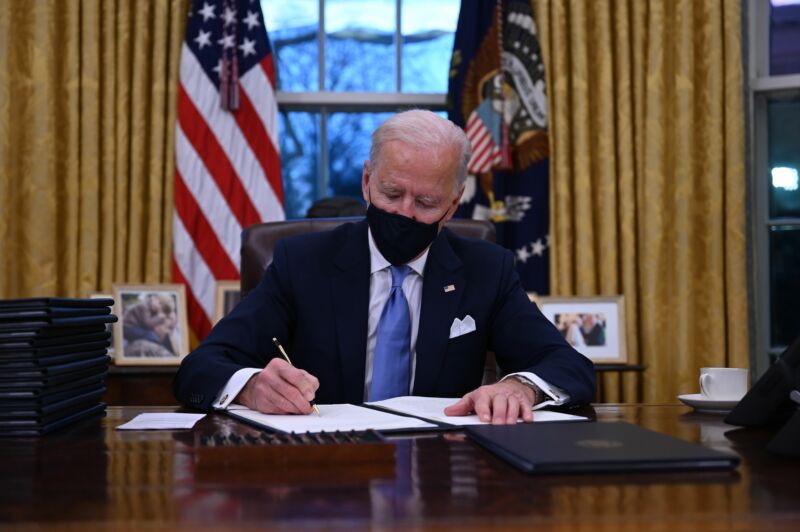
One of the first official actions taken by President Joe Biden after his inauguration on January 20 means the almost-certain demise of a Trump-era plan to weaken future fuel efficiency regulations. Among Biden’s instructions to federal agencies was an “Executive Order on Protecting Public Health and the Environment and Restoring Science to Tackle the Climate Crisis.”
This executive order tells federal agencies that environmental justice is a priority—one that will now be guided by scientific evidence. Additionally, the heads of each agency will have to review any regulations, policies, or other actions taken between January 20, 2017 and January 20, 2021 that are inconsistent with that goal. And there’s a particular call-out for the US Environmental Protection Agency’s recent actions to weaken US fuel efficiency standards over the coming few years, as well as the agency’s attempt to neuter California’s power to regulate air pollution.
The previous administration’s attack on clean air and fuel efficiency began almost immediately and culminated with a pair of actions over the past 16 months. In September 2019 the EPA announced that it was revoking a waiver that has allowed California to set and enforce its own tougher air pollution standards within the state’s borders. Then in March 2020 the EPA published a new fuel efficiency rule for passenger cars and light trucks for model years 2021-2026 that significantly weakened fleet efficiency targets mandated by the Obama administration.
Now, the EPA has until April 2021 to publish a proposed rule “suspending, revising, or rescinding” the revocation of California’s air pollution waiver. And by July 2021 it has to do the same for the widely criticized fuel efficiency rule, with instructions to take into account the views of “representatives from labor unions, States, and industry.” Although some companies like GM and Toyota sided with the Trump administration’s actions, other automakers voluntarily signed up to California’s rules.
https://arstechnica.com/?p=1736539

